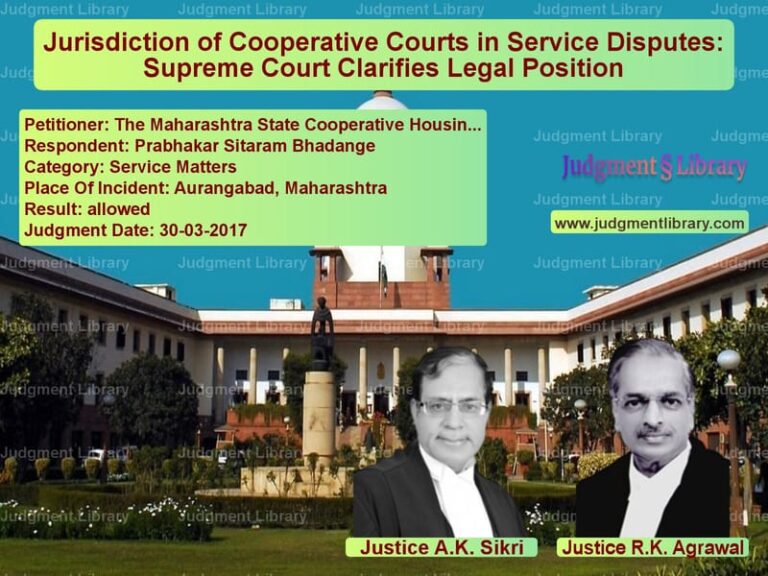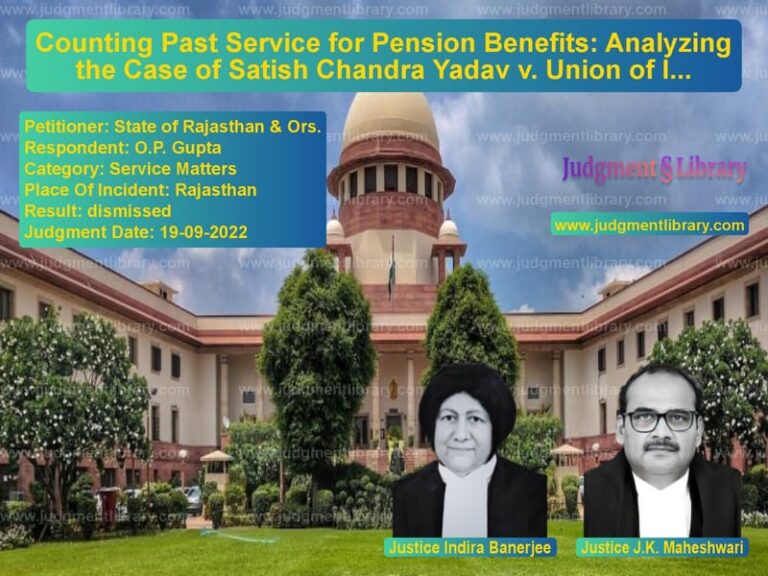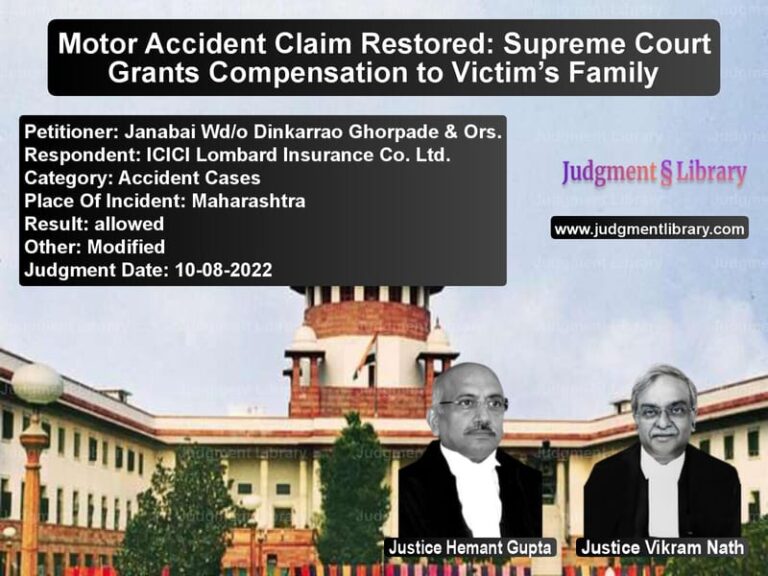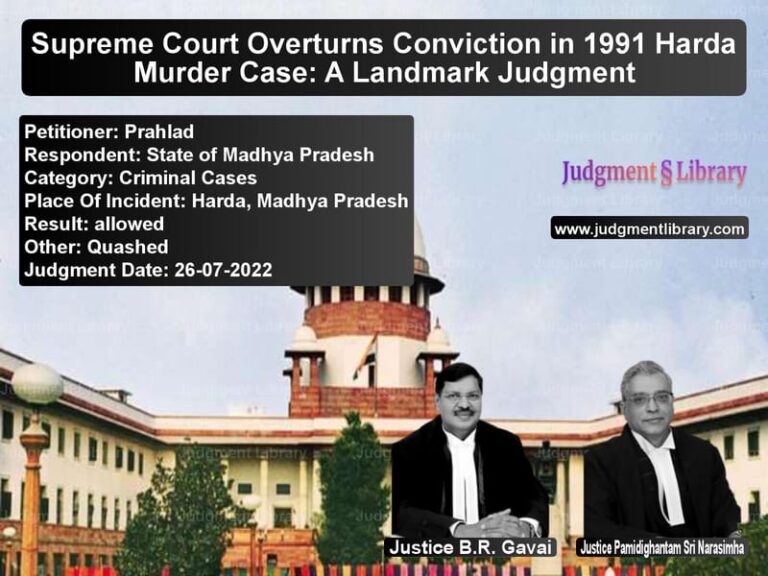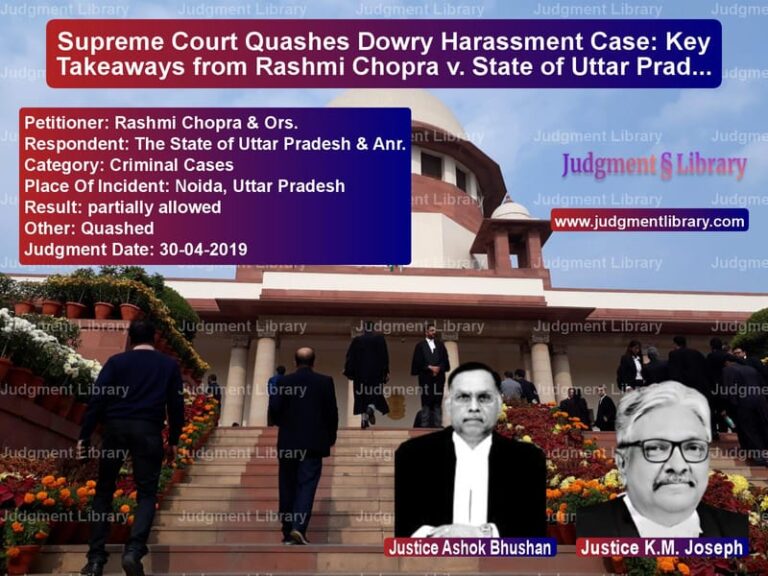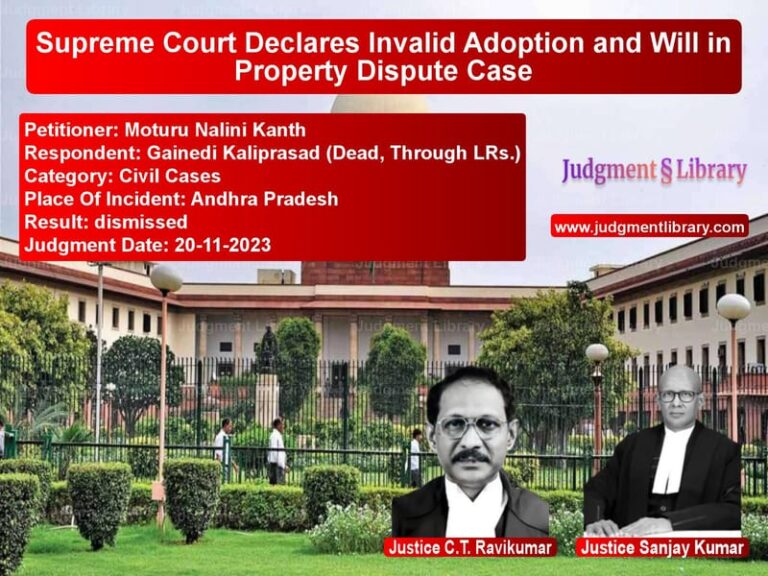Supreme Court Overturns Conviction in Kalinga @ Kushal vs. State of Karnataka: A Detailed Analysis
The Supreme Court of India in the case of Kalinga @ Kushal vs. State of Karnataka revisited the legal principles governing circumstantial evidence, extra-judicial confessions, and the overturning of acquittals. The key issue in the appeal was whether the High Court had erred in reversing the trial court’s acquittal and convicting the appellant. This case serves as an important precedent in analyzing how courts must handle circumstantial evidence and maintain the burden of proof beyond a reasonable doubt.
Case Background
The case revolved around an alleged murder that took place on November 3, 2002, in Hubli, Karnataka, where a 2.5-year-old child named Hrithik was found dead in a well. The appellant, the deceased’s uncle, was accused of throwing the child into the well following a family dispute. The father of the deceased (PW-1) lodged an FIR claiming that the accused had confessed to him about the crime. Based on this, an investigation was initiated, and the accused was later arrested.
The trial court, after examining all the evidence, acquitted the accused on the grounds that the evidence presented was insufficient to establish guilt beyond a reasonable doubt. However, the Karnataka High Court reversed this decision, convicting the accused mainly on the basis of an extra-judicial confession and circumstantial evidence.
Issues Raised in Appeal
The appellant challenged the High Court’s decision in the Supreme Court, arguing that:
- The High Court failed to acknowledge the inconsistencies in the statements of PW-1, who made multiple contradictory claims regarding the alleged confession.
- The prosecution’s case heavily relied on an extra-judicial confession, which lacked corroboration and was, therefore, unreliable.
- The circumstantial evidence presented was weak and failed to establish an unbroken chain linking the accused to the crime.
- The principle of ‘last seen together’ was misapplied since no witness conclusively saw the accused with the child before the incident.
- The trial court’s judgment was based on a reasonable evaluation of the evidence, and the High Court had no strong grounds to overturn it.
Judicial Observations
The Supreme Court analyzed the following key aspects:
- Reliability of Extra-Judicial Confession: The Court reiterated that such confessions require independent corroboration. In this case, the alleged confession was neither recorded before a magistrate nor supported by other substantial evidence, making it unreliable.
- Last Seen Together Doctrine: The prosecution failed to establish with certainty that the accused was the last person seen with the deceased before the incident. There were inconsistencies in witness testimonies regarding the timeline.
- Standard of Proof in Criminal Cases: The Court emphasized that a conviction cannot be sustained unless the prosecution establishes guilt beyond a reasonable doubt. In this case, the evidence was inadequate to meet this threshold.
- High Court’s Reversal of Acquittal: The Supreme Court underscored that an appellate court should not overturn an acquittal unless the trial court’s findings are perverse or wholly unsustainable, which was not the case here.
Supreme Court’s Verdict
The Supreme Court concluded that the conviction was not legally sustainable, as the prosecution had failed to present conclusive evidence linking the accused to the crime. The High Court’s decision was set aside, and the appellant was acquitted.
Implications of the Judgment
This case reinforces the importance of adhering to established legal principles in criminal trials:
- Weight of Extra-Judicial Confessions: Courts should be cautious in relying on confessions made outside official channels unless supported by substantial corroborative evidence.
- Burden of Proof: The prosecution must establish guilt beyond reasonable doubt, particularly in cases based on circumstantial evidence.
- Reversal of Acquittals: Appellate courts must exercise caution before overturning trial court acquittals, ensuring that the lower court’s findings are demonstrably flawed before intervening.
In conclusion, this ruling serves as a vital precedent in reinforcing the safeguards against wrongful convictions, especially in cases dependent on circumstantial evidence.
Petitioner Name: Kalinga @ Kushal.Respondent Name: State of Karnataka By Police Inspector Hubli.Judgment By: Justice Bela M. Trivedi, Justice Satish Chandra Sharma.Place Of Incident: Hubli, Karnataka.Judgment Date: 20-02-2024.
Don’t miss out on the full details! Download the complete judgment in PDF format below and gain valuable insights instantly!
Download Judgment: kalinga-@-kushal-vs-state-of-karnataka-b-supreme-court-of-india-judgment-dated-20-02-2024.pdf
Directly Download Judgment: Directly download this Judgment
See all petitions in Murder Cases
See all petitions in Bail and Anticipatory Bail
See all petitions in Custodial Deaths and Police Misconduct
See all petitions in Judgment by Bela M. Trivedi
See all petitions in Judgment by Satish Chandra Sharma
See all petitions in allowed
See all petitions in supreme court of India judgments February 2024
See all petitions in 2024 judgments
See all posts in Criminal Cases Category
See all allowed petitions in Criminal Cases Category
See all Dismissed petitions in Criminal Cases Category
See all partially allowed petitions in Criminal Cases Category


